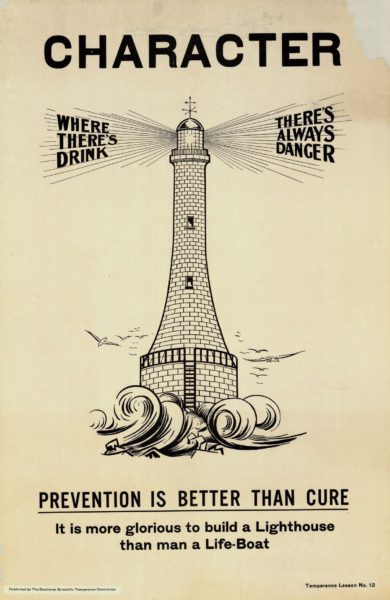DAVIDSON HISTORY
“Spare the Boys”

From its earliest beginnings, Davidson College was determined to protect its students from all sorts of perceived evils. The first charter of the college declared that “it shall not be lawful for any person or persons to set up or continue any gaming or billiard table, or any device whatever for playing at any game of chance or hazard, by whatever name called, or to exhibit any sleight of hand, theatrical or equestrian performances, dramatic recitations, rope or wire dancing, or other itinerant, natural, or artificial curiosities, or to receive or use any license to retail spirituous liquors, or otherwise to sell, give or convey to the Students of said College any intoxicating liquors within two miles of said College, without the special permission in writing of the Faculty of said College.” Not much diversion for students living in a tiny village with no train and poor roads! Davidson was not unique in its position, however. The University of North Carolina had similar restrictions.
The prohibition on drinking lasted for over a century. According to Cornelia Shaw’s history of the college, in the 1840s, when the college decided to open up land across Main Street from the campus, they offered 99-year leases on the properties but with restrictions. Tenants “could not vend, barter, traffic, give, or deal in any way in ardent spirits, wine, cider, gin, porter, ale, or any other kind of intoxicating liquor.” In 1858 and 1859, these restrictions were enacted into state law. An 1858 law declared that “no person shall erect, keep, maintain or have at Davidson College, or within three miles thereof, and tippling house, establishment or place for the sale of wines, cordials, spirituous or malt liquors… That no person, without permission in writing from the president of said college, or some member of its faculty, shall sell or offer to sell or deliver to any student of said college, or to any other person or persons whatsoever, any wine, cordial, spirituous or malt liquors, for the purpose of being used at Davidson College (or within three miles thereof) by any student.” According to the 1882 Davidson College catalog, “Few places are so free from temptations to vice and extravagance. The situation of the College is remote from towns and large villages.”
After years of trying to prevent liquor sales, the College finally had a bootlegger arrested and tried in September 1898. The culprit was identified as Ollis Cathcart, and despite numerous college demands that he cease selling to students, he continued. According to the September 28 edition of the Manning Times, Cathcart was arrested, tried in Mecklenburg County criminal court, and convicted of “retailing liquor to students at Davidson College.” He was sentenced to twelve months on the chain gang, working on county roads. According to the trial judge, “The offenses with which this man is charged, to my mind, are … most serious… Davidson College…holds out to the parents and guardians of these boys…that they will be guarded and protected against all vices and improper influences … Our schools and colleges must be protected. If men will deal in spirituous liquors, let them sell to the men of mature years, but for God and humanity’s sake, spare the boys.”
This prohibition of alcoholic beverages did not just apply to the students. At the end of Prohibition in 1933, college president Walter Lingle issued a strong reply to the question of whether Davidson faculty should be allowed to serve wine and beer in their homes, not just to students, but at any time. Lingle was opposed to this, saying in a letter that “Six hundred homes have placed their boys in our keeping. They have done so because they believe that we stand for…high Christian ideals. That being true, we should all work together…to protect these boys from temptation of any kind…[and] to translate into life for them the highest ideals of the Christian religion.”
The 1960 college catalog still included the admonition that “Any student found guilty of drinking alcoholic liquors, having them in his possession, or being under the influence on the campus, is …dismissed.” In 1965, the college’s rules on drinking were relaxed somewhat. Students were allowed to drink on most occasions, but only if they were older than 18, and not if it involved public intoxication or ungentlemanly conduct. The town of Davidson continued to be a dry town, and students continued to be habitués of Hattie’s, a bar just over the Iredell County from Davidson. In February 1969, the town went “wet” when Mrs. Colleen Norket, owner of the Davidson Grocery on Depot Street, was granted a permit to sell beverages of up to 20 per cent alcoholic content. Hattie’s burned down in 1975, and was commemorated on the campus for many years by “Hattie’s Night.”
Nancy Griffith
Nancy Griffith lived in Davidson from 1979 until 1989. She is the author of numerous books and articles on Arkansas and South Carolina history. She is the author of "Ada Jenkins: The Heart of the Matter," a history of the Ada Jenkins school and center.


